- Startup Spells 🪄
- Posts
- How Devin uses GitHub for Side Project Marketing (feat. DeepWiki)
How Devin uses GitHub for Side Project Marketing (feat. DeepWiki)
PLUS: Michael Dell, Dell Technologies
How Devin uses GitHub for Side Project Marketing (feat. DeepWiki)
Devin, an AI software engineering SaaS, launched DeepWiki, a free AI-powered code documentation tool that transforms any GitHub repository into an interactive wiki with embedded AI assistance.
The strategic genius is targeting the world's largest code repository platform GitHub to showcase their core product's capabilities while building massive distribution channels.
Free for Public, Paid for Private: The Freemium Developer Playbook
DeepWiki offers completely free access for public GitHub repositories while charging for private repo access. This creates a natural funnel where individual developers experience the product value on open-source projects, then convert their companies to paid plans for private repositories.
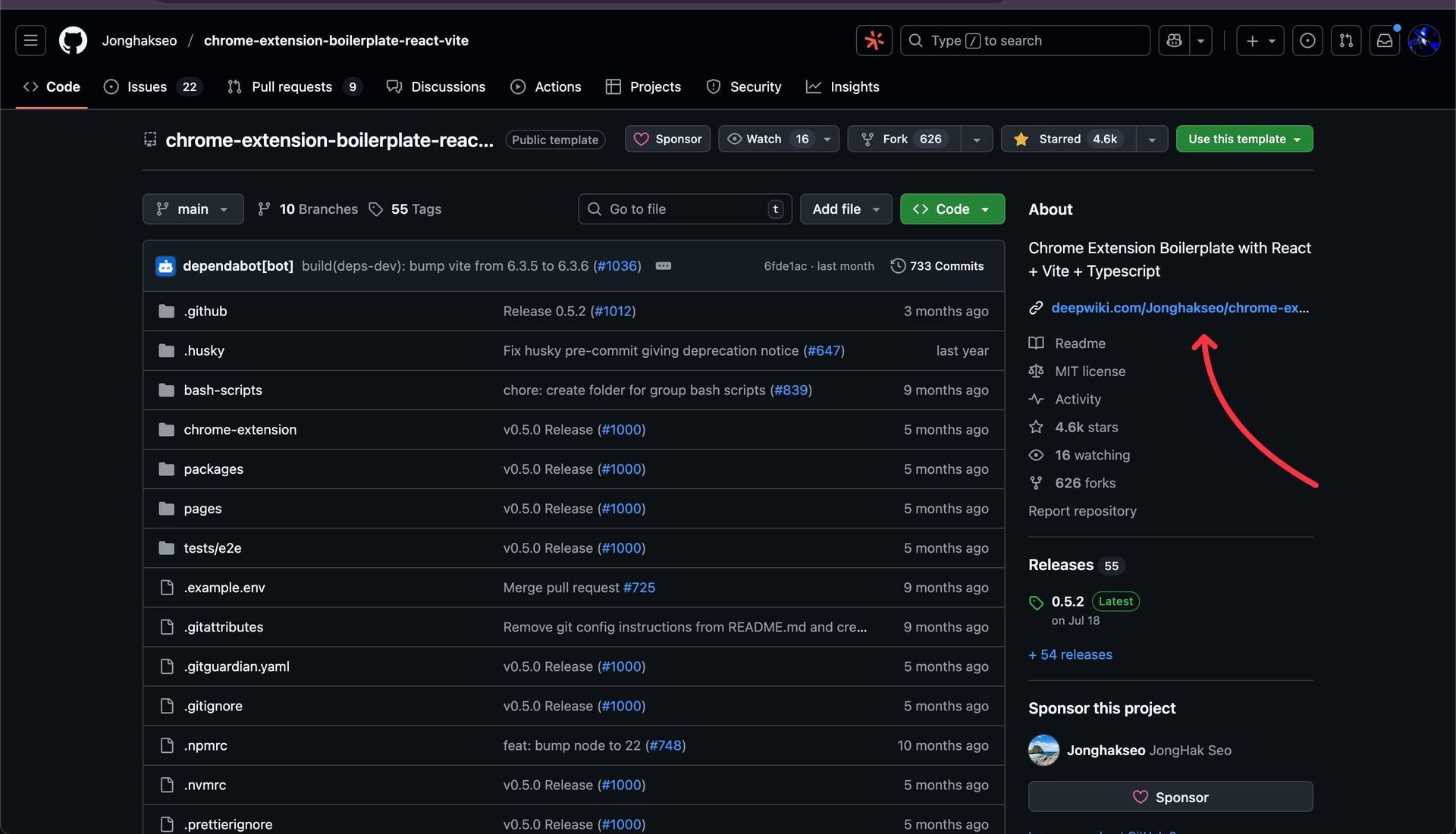
GitHub repository showing DeepWiki documentation link in sidebar
The conversion mechanism is elegant: developers who rely on DeepWiki for understanding open-source codebases naturally want the same capabilities for their proprietary work.
The Backlink Goldmine: Getting Popular Repositories to Link Back
By offering free DeepWiki integration to popular repositories, Devin secures high-authority backlinks from some of the most trafficked developer resources on the internet.
Repository maintainers add DeepWiki links to their README files and documentation, creating permanent inbound links.
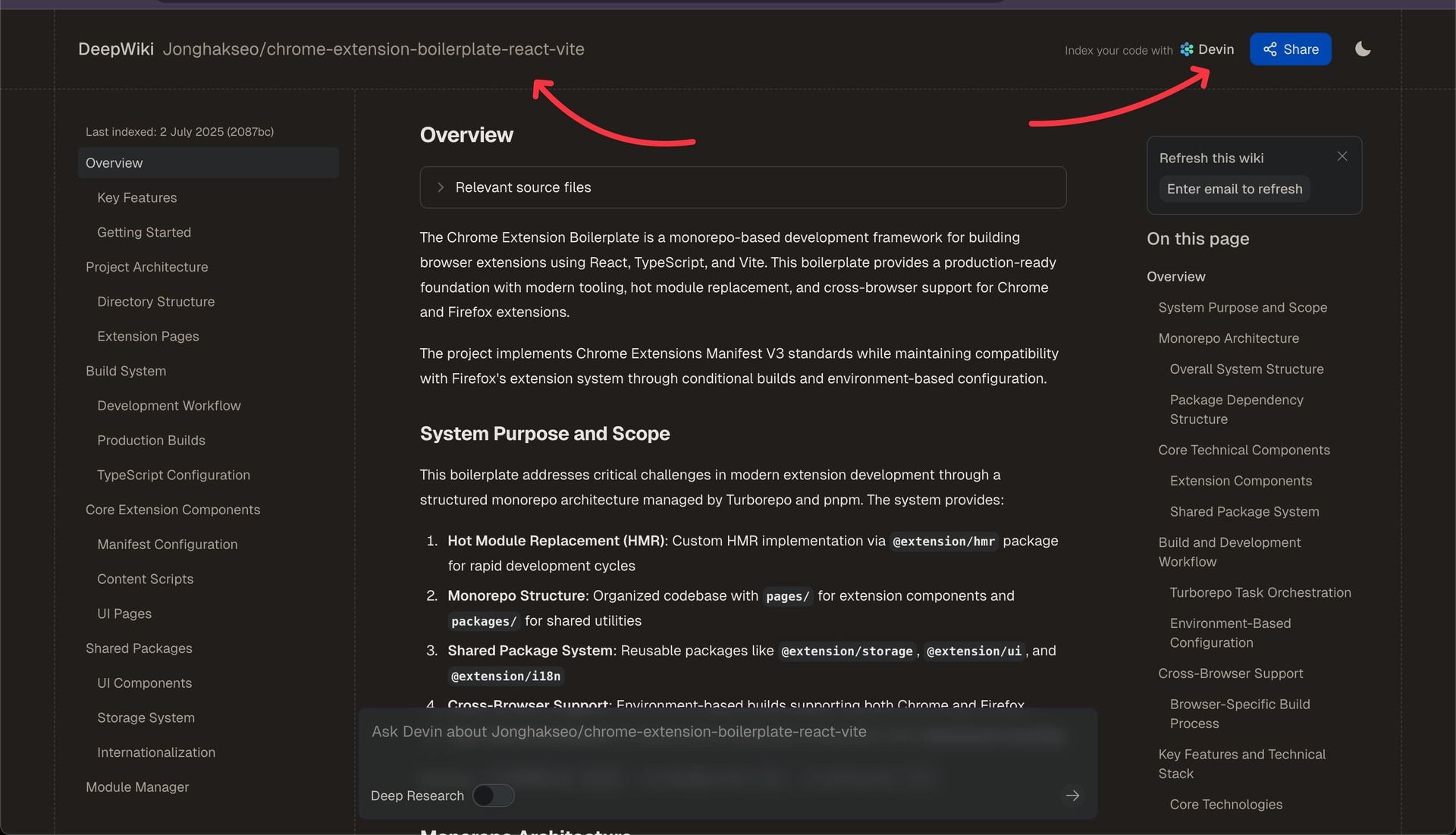
DeepWiki overview page showing comprehensive code documentation interface
Consider repositories with thousands of stars and daily visitors—each DeepWiki badge becomes a perpetual traffic source. The Chrome Extension Boilerplate repository demonstrates this perfectly with prominent DeepWiki integration.
Developer Influencers Love Free Tools Worth Reviewing
The developer community thrives on tutorial content and tool recommendations. DeepWiki's free tier creates perfect conditions for viral content creation across YouTube, Twitter, and technical blogs.
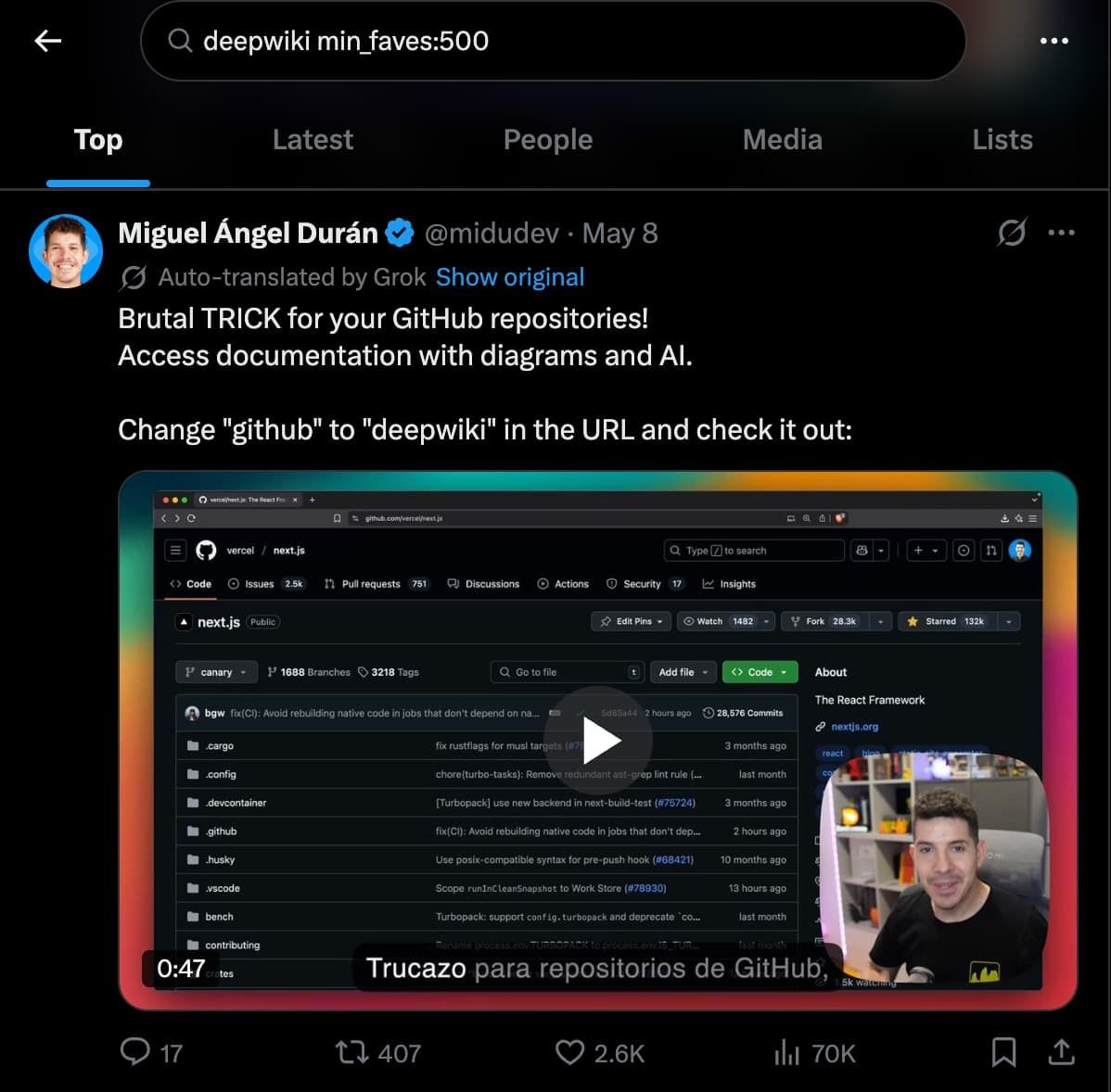
Twitter post demonstrating DeepWiki viral engagement with thousands of views
Influencers naturally gravitate toward reviewing genuinely useful free tools. Videos like those from tech reviewers showcasing DeepWiki's capabilities generate organic awareness while demonstrating Devin's underlying AI engineering capabilities.
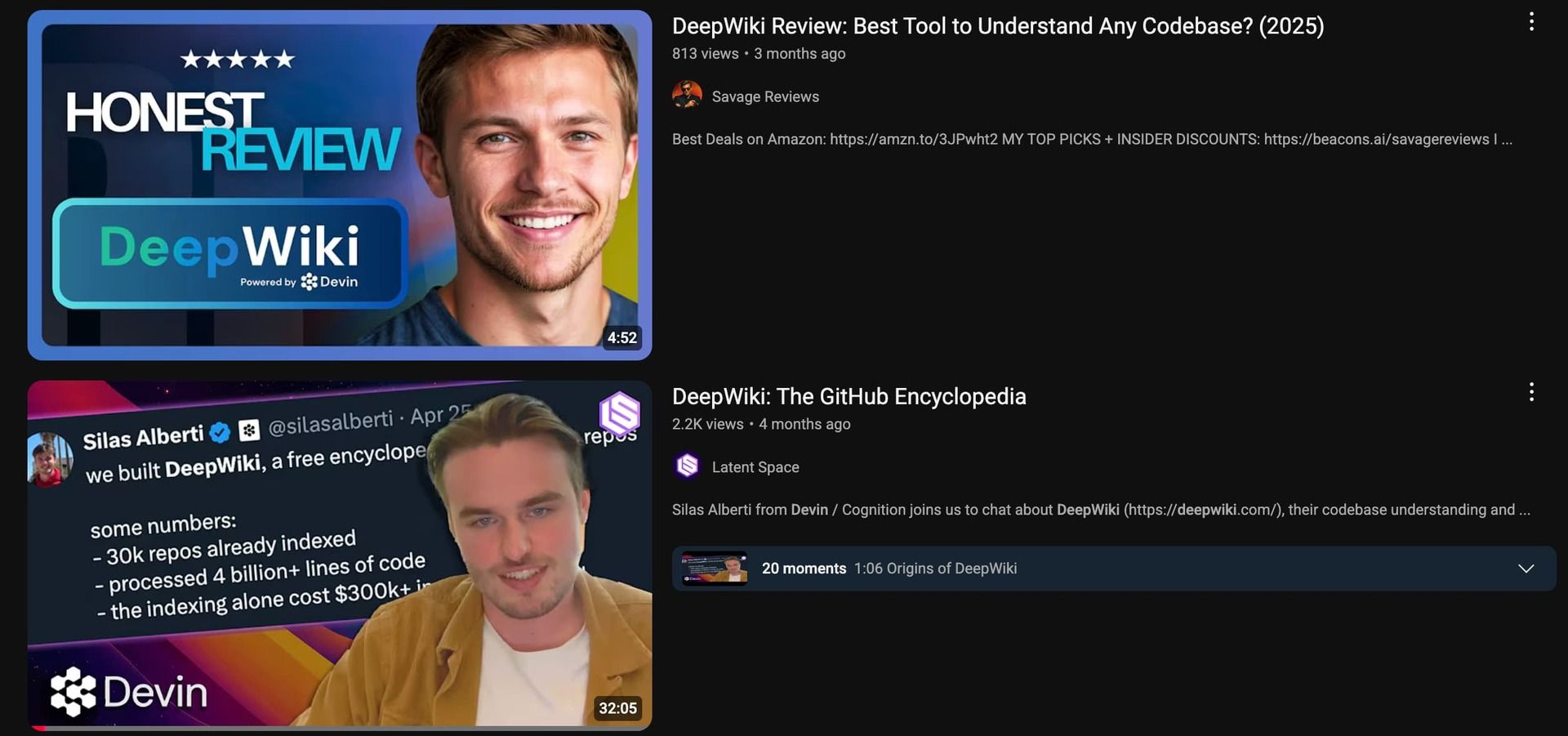
YouTube search results showing multiple DeepWiki review and tutorial videos
The Ultimate Product Demonstration: Show, Don't Tell
Instead of abstract claims about AI coding capabilities, DeepWiki provides tangible proof.
Every indexed repository becomes a live demonstration of what Devin's AI can accomplish—analyzing complex codebases, generating documentation, answering technical questions.
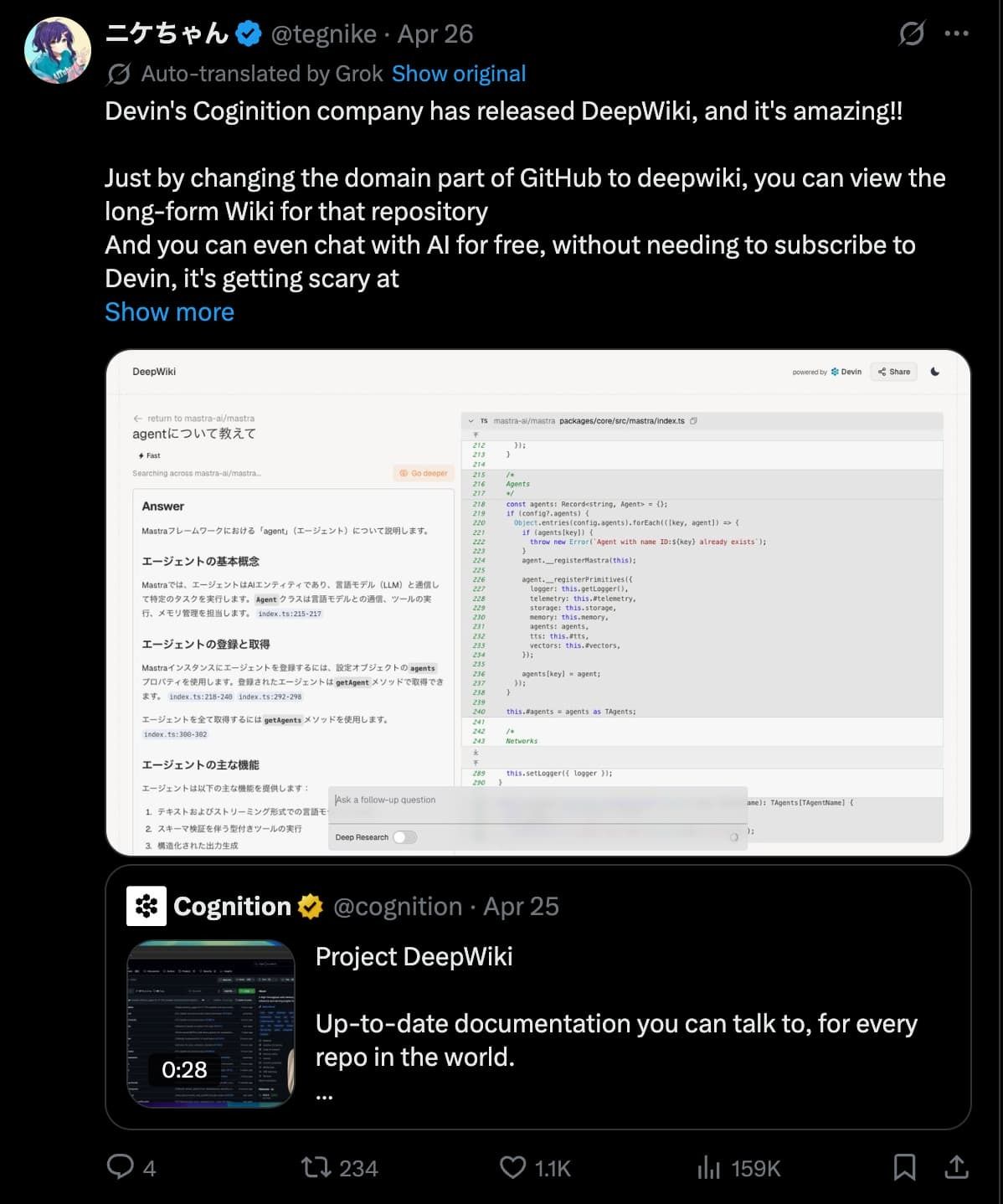
Twitter post showing DeepWiki Japanese language support and AI chat features
This approach solves the eternal SaaS challenge: letting prospects experience product value before commitment.
Developers interact with Devin's AI technology through DeepWiki, building trust and familiarity before considering the paid Devin platform.
Direct Developer Outreach: Mining GitHub for Sales Prospects
Public GitHub profiles contain contact information for developers actively seeking work or collaboration. DeepWiki's integration with popular repositories creates natural conversation starters for Devin's sales team to reach engineering leaders and decision-makers.
The value exchange is legitimate—DeepWiki genuinely improves repository accessibility. This transforms cold outreach into warm introductions where Devin has already provided value.
The Beginner Education Funnel: Training Tomorrow's Customers
Junior developers learning to code rely heavily on understanding existing codebases. DeepWiki becomes an essential learning tool, creating brand loyalty early in developers' careers.
This mirrors the broader tech industry playbook where companies invest in student adoption to capture future enterprise customers. There's a reason GitHub has a free student pack for premium access to many tools, Cursor provides free AI code editor access to US students, and Google distributes Gemini to all students globally.
The scale difference is evident: Google's massive resources enable worldwide student access, while Cursor strategically targets US students. DeepWiki's advantage is requiring no gating—any student can use it immediately on public repositories, building familiarity with Devin's AI capabilities before they ever influence purchasing decisions at their future employers.
When these developers eventually shape tool selection at their companies, Devin already occupies mindshare as the platform that helped them learn.
With 30,000+ repositories indexed and 4 billion+ lines of code processed, DeepWiki demonstrates that strategic side projects don't just market products—they can fundamentally reshape how your target audience discovers and adopts your core offering.
Top Tweets of the day
1/
The gold rush is here, This is literally how to make $40k/mo with Whop apps
— Ernesto Lopez (@ErnestoSOFTWARE)
7:58 PM • Oct 13, 2025
Gold rush in Whop apps but even better imo is ChatGPT apps. ChatGPT apps are the new iPhone apps.
There was a time when people got rich building MP3 Ringtones. Similar gold rush now.
2/
Same page with just 57k followers - look at those reactions! 🤯
Again the golden combo of controversial take caption + cute or funny animal image.
I figured out a process to make 10,000s of these in bulk - and every one is original. 🔥
— Andy Skraga | Make Money On Facebook (@AndySkraga)
10:45 AM • Oct 15, 2025
MEME potential. This is a pattern-interrupt.
3/
I think I found super clear proof that posts on social media really matter for SEO (Google). Even more than we think.
Do keywords in your tweets matter a lot?
Google ranks my project (puppeteer.guide) by the keywords I mentioned only in my launch tweet! And not in my
— Dmytro Krasun (@DmytroKrasun)
6:31 AM • Jun 20, 2024
Evidence found. Social Media does influence your product in the eyes of Google and others.
You only have to build an audience once. Once you are famous, you are famous forever.
There is a reason Naval Ravikant once tweeted: "You want to be rich & anonymous, not poor & famous."
The tweet was for another reason but the underlying message was fame is permanent. You really don't want to poor while being famous because you'd get hounded for lots of selfies by fans.
Rabbit Holes
What’d ya think of today’s newsletter? Hit ‘reply’ and let me know.
Do me a favor and share it in your company's Slack #marketing channel.
First time? Subscribe.
Follow me on X.
More Startup Spells 🪄
TikTok Comment Bounty: How Faking Virality Drove 18K Users in 14 Days for Parrot App (LINK)
Roblox's $100 per day cheap Growth Hack to Hit 100,000 Users using Google Ads (LINK)
FreeWater Marketing (LINK)
How Family and Group Plans Improve SaaS Retention and Reduce Churn (LINK)
Negative Word of Mouth (LINK)
Reply